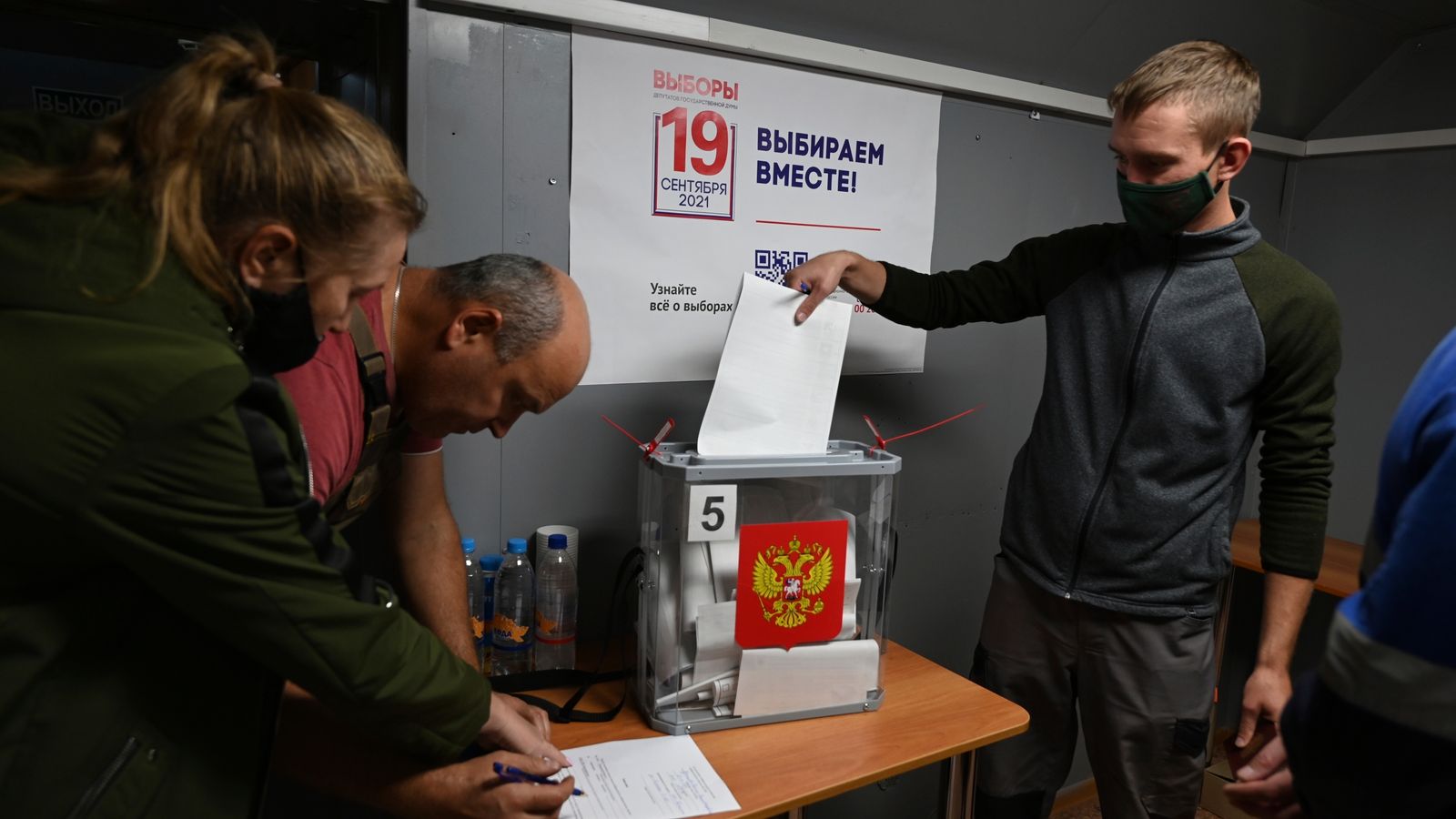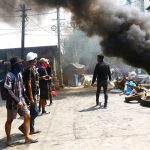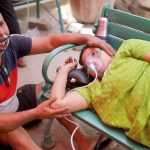Shortly after polls opened on Friday morning, a long queue had already formed outside a polling station in Moscow’s central Arbat district.
Many of those waiting were workers from the nearby Ministry of Defence as evidenced by the branded briefcases they were holding.
They’d been given the morning off to cast their votes at the start of three days of elections for the Russian parliament
Vladislava was monosyllabic. Did she think her vote would make a difference? Yes. Did she want change? She likes things how they are. Does she work for the state? Yes.
The ruling party United Russia has 353 of the 450 seats in the state parliament or Duma.
It is a supermajority the party wants to keep. But United Russia has been polling badly.
That’s why there are long queues so early in the voting process. It’s all about monitoring and mobilising as many United Russia voters as the state can muster.
COVID-19: Dozens of infections in Putin entourage force him to self-isolate ‘for a few days’
Vladimir Putin and Syria’s President Assad meet in Moscow for first time since 2015
Zapad 2021: Russia showcases military might with massive series of drills alongside Belarus forces
Given President Vladimir Putin’s cast-iron grip on power, you might ask why the Kremlin is working so hard to control the outcome.
In the run-up to these elections, the full panoply of dirty tricks has been at play.
Doppelgänger spoiler candidates, cash handouts; independent candidates barred from running on spurious grounds – often for supposedly foreign links; and the time-honoured traditions of state workers marched out to cast their votes for United Russia. Old habits die hard.
Then there are the Soviet-style repressions as if President Putin is trying to outdo his neighbour over in Belarus.
Alexander Lukashenko has been hammering anything even resembling dissent since mass protests last summer.
In Russia, around the same time, opposition leader Alexei Navalny was poisoned.
He is now in jail and most of his top team have fled the country.
On Friday, US tech giants Apple and Google caved into demands they remove an app designed by Mr Navalny’s allies from their stores.
The Smart Voting app gives people detailed recommendations on who to vote for in an effort to thwart the electoral chances of the ruling United Russia party.
Sources at Google told Sky News it was not a decision they took lightly but that their staff on the ground had received “multiple threats”.
More and more journalists are now joining the ever-growing numbers of Russians in exile.
Each Friday more names are added to the list of so-called foreign agents, which now stretches to 47 media outlets, activists and individuals.
Being on the list essentially brands you an enemy of the state, which means advertising falls away and you must prepare labour-intensive audits.
Even the tiniest mistakes can lead down a path of escalating criminal charges.
“I think for a long time the Russian authorities pretended that you have a democracy here.
“But one day they decided not to pretend anymore and to become a real autocracy,” Tikhon Dzyadko, editor-in-chief of independent TV station Dozhd, or Rain TV, told Sky News.
“If you can’t improve the economic situation yourself, you’ve got to find an enemy and blame them,” Pavel Grudinin, a wealthy farmer who was disqualified from running as a candidate for the Communist party, added.
Mr Grudinin ran for president against Vladimir Putin in 2018. He won just 12% of the vote but that was closer than anyone else came to defeating Mr Putin and it clearly riled powerful forces.
Since then he has faced off around 1,000 lawsuits – an aggressive campaign he thinks is designed to force him into bankruptcy.
Barring the likes of Mr Grudinin from the elections runs the risk of turning the communist party from a mostly pliant subordinate to United Russia into an actual political force.
Thanks to Mr Navalny’s Smart Voting app the communists look like they’ll be putting in their strongest showing in years.
There will most likely be a threshold they dare not cross, but it is an interesting new political dynamic in a carefully controlled political environment.
Outside the Arbat polling station, a man who gives his name simply as Andre says he was instructed by his state-employer to come but that he’ll use Smart Voting to make his choice.
“If everyone uses Smart Voting, then maybe things will change,” he said.
Things are unlikely to change, not now. But for all the certainty that this election will be neither free nor fair and that voter turnout will be pitifully low, there is still the potential for surprises.
“Forecasts in Russian politics never come true,” Mr Grudinin said.
“The rules are changing every time we hold an election. The British invented football. Just imagine if the rules of football changed every world championship. That is how we live.”






















